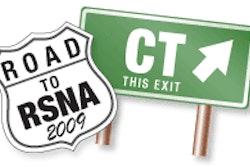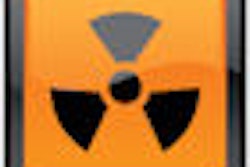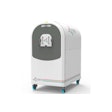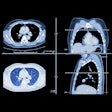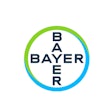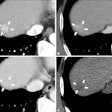Thursday, December 3 | 11:00 a.m.-11:10 a.m. | SSQ08-04 | Room E353C
The use of mannitol as an endoluminal contrast agent increases diagnostic efficacy in bowel pathology, handily beating iodinated contrast and water alone, according to research from Kasturba Medical College in Manipal, India."The purpose of our study was to assess the efficacy of mannitol as luminal contrast with water-equivalent attenuation in producing better distension, visibility of bowel wall, fold pattern, and image quality in comparison with water without additives and iodine-based luminal contrast agent," Dr. Koteshwar Prakashini wrote in an e-mail to AuntMinnie.com.
A total of 300 patients who underwent 64-detector-row CT of the abdomen and pelvis were randomly chosen for the study, with patients divided into three groups of 100 each, without significant differences in demographics or indications.
The mannitol contrast group received 3% mannitol in water, the positive contrast group received 65% diatrizoate meglumine (20 mL diluted in 1,500 mL water), and the water group received tap water. The three groups received 1500 mL solution over 45 to 60 minutes. The researchers analyzed overall image quality, as well as distension, intraluminal homogeneity, and other factors.
The mannitol group achieved statistically significant better distension and homogeneity, and greater differentiation between wall and intraluminal contents and characterization of mural features as compared to water and positive intraluminal contrast group, both qualitatively and quantitatively, Prakashini stated.
"Mannitol in water increased the diagnostic accuracy ... in comparison to water and iodine-based contrast by producing significantly better bowel distension and visibility of mural features, which improved image quality without additional adverse effects on the image reconstruction or side effects to patient," Prakashini said.






